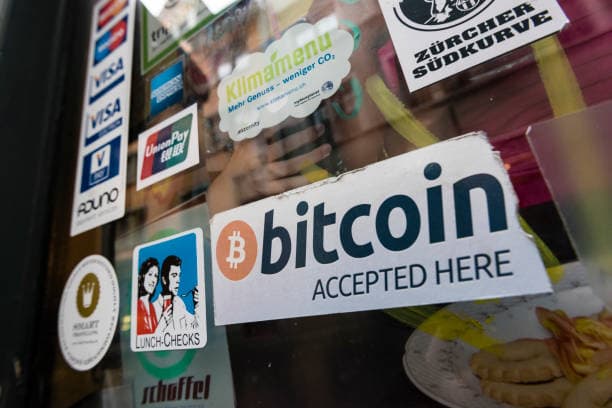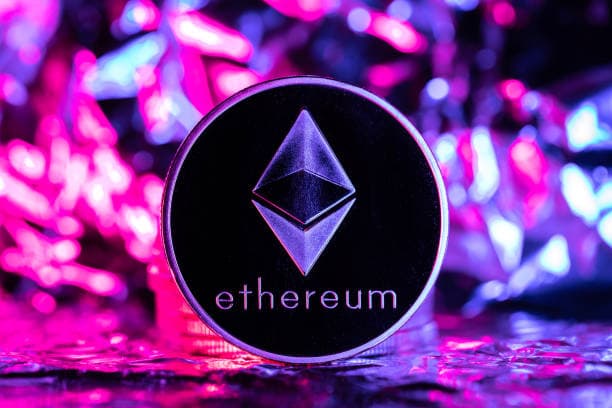How long does it take to recharge Bitcoin? Bitcoin Charge Time Details
When you transfer Bitcoin from one wallet to an exchange or another, you may find that the time it takes for a charge to arrive can sometimes vary. This article will take a closer look at the factors that affect the time it takes for a Bitcoin reload to arrive, and help you understand the approximate amount of time it takes to complete a reload. Factors ranging from blockchain confirmation speeds, exchange processing times, and network congestion can all affect the final time to deposit. Let's take a look at the whole process and the time variables involved in a Bitcoin reload.

What is Bitcoin Charging?
Bitcoin reloading refers to the process of transferring Bitcoin from one address (e.g., a personal wallet or other exchange) to another. In this process, the Bitcoin does not arrive at the target address directly and instantly, but is instead confirmed by the blockchain network to ensure the validity and security of the transaction. Each transaction is recorded by the blockchain network in one block and confirmed multiple times, which prevents double payments or other security issues.
Factors affecting the speed of Bitcoin replenishment
The speed at which Bitcoin can be reloaded is affected by a number of factors. The first is the state of the Bitcoin network itself, followed by the processing time of the exchange. One of the most important factors is the number of confirmations on the blockchain. Each Bitcoin transaction must go through a certain number of block confirmations before it can be considered fully valid. Generally speaking, exchanges usually require at least 1 to 6 confirmations before the amount of money to be recharged will appear on your account.
Blockchain network congestion: When the volume of Bitcoin transactions is high, the network becomes congested, which leads to longer transaction confirmation times, thus delaying the arrival of the reloaded coins.
The level of the transaction fee: If you set a higher transaction fee, the transaction will be confirmed relatively quickly, and vice versa.
Exchange Processing Time: The processing time for charging coins varies from exchange to exchange, some exchanges process them quickly while others may take longer to confirm the transaction.
The Basic Process of Bitcoin Coinage
When you transfer Bitcoin from your wallet or other exchange, you first send the Bitcoin to the destination address. Then, the Bitcoin network records your transaction in blocks and confirms it over time, based on how the blockchain works. Each time a block is added to the blockchain, the transaction is confirmed once. As the number of confirmations increases, so does the security and non-tamperability of the transaction.
Typically, Bitcoin transactions require 6 confirmations before they are fully recognized by an exchange. This is because after 6 confirmations, the transaction is considered very secure and cannot be changed. Some exchanges will accept 1 to 3 confirmations, especially if the transaction is small or the exchange is flexible in its risk management.
How long does it take for Bitcoin to be credited?
Typically, a Bitcoin charge will take between 15 minutes and an hour to arrive, depending on a number of factors. When the blockchain network is smooth and the fee is reasonable, the reloading time is usually faster. The following are the main factors that affect the time it takes for a Bitcoin charge to arrive:
Blockchain Confirmation Speed
Bitcoin's block time is about 10 minutes, which means that a new block is created every 10 minutes. If the network is not congested, a recharge is usually completed within 15 minutes to an hour.Handling Fee Setting
In Bitcoin trading, the fee has a significant impact on the speed of confirmation. If you choose a higher fee, the miner will prioritize your transactions, which will speed up the confirmation process. Lower fees may result in longer wait times for transactions.Blockchain Congestion
When the Bitcoin network is congested, transaction confirmation times increase, which can prolong the time it takes to reload. Network congestion usually occurs when the price of Bitcoin fluctuates dramatically, or when there is large-scale trading activity.Processing time of the Exchange
Some exchanges will display the amount of the coin charge as soon as the first block confirmation is received, while others may wait for more confirmations before processing. Different exchanges have different strategies for crediting, and this can be a key factor in the time it takes to get credited.
Comparison of Bitcoin Charging Time on Major Exchanges
Below is a reference of Bitcoin reloading times for a few common exchanges:
- Binance: Usually 1 to 6 block confirmations are required. It takes about 15-30 minutes for the confirmation to be credited.
- Coinbase: 3 confirmations are required, and you will be billed in about 30-45 minutes.
- KuCoin: Requires at least 1 confirmation, and is quicker to reload, usually within 10-20 minutes.
These times are for reference only and are subject to change based on blockchain congestion and the exchange's internal processes.
How to speed up Bitcoin reloading?
Although the Bitcoin reloading process is mostly determined by the blockchain network, you can still speed up the reloading process by doing the following:
- Increase in Handling Fee: As mentioned earlier, setting a higher handling fee will allow you to prioritize your trades more, thus speeding up confirmations.
- Faster exchange selection: Choose an exchange with faster confirmation speeds so that you can shorten the time it takes to reload your coins even if the blockchain is slow to confirm them.
- Avoiding Peak Periods for Coin Replenishment: If possible, avoid peak times on the Bitcoin network (e.g., major news events or periods of Bitcoin price volatility), which will reduce the risk of network congestion.
Reasons for Bitcoin Deposit Failure and How to Deal with It
In rare cases, a Bitcoin reload may fail because the transaction was not successfully confirmed or was rejected by the system. Common reasons include:
- Handling fee is too low: If the handling fee is set too low, the transaction may be ignored by the miner, resulting in a failed confirmation.
- Address Error: Entering the wrong address may result in the loss of funds.
- Exchange System Problems: Occasionally, there are internal problems with the exchange that cause delays or errors in the replenishment of coins.
If this happens, you can contact the exchange's customer service to handle the situation. Most exchanges will provide transaction status inquiries to help retrieve unaccounted funds.
Trivia
Bitcoin reloading usually takes between 15 minutes and an hour, but can be affected by a variety of factors such as network congestion, high or low fees, and block confirmation times. Understanding these factors can help you better predict the arrival time of your coins and make adjustments if necessary. Choosing the right exchange and setting reasonable fees can speed up the process of Bitcoin replenishment, allowing you to complete transactions more smoothly.

We hope this article has helped you understand the detailed process of Bitcoin coin replenishment and provided you with some useful and practical advice on how to become more comfortable in the cryptocurrency world.














